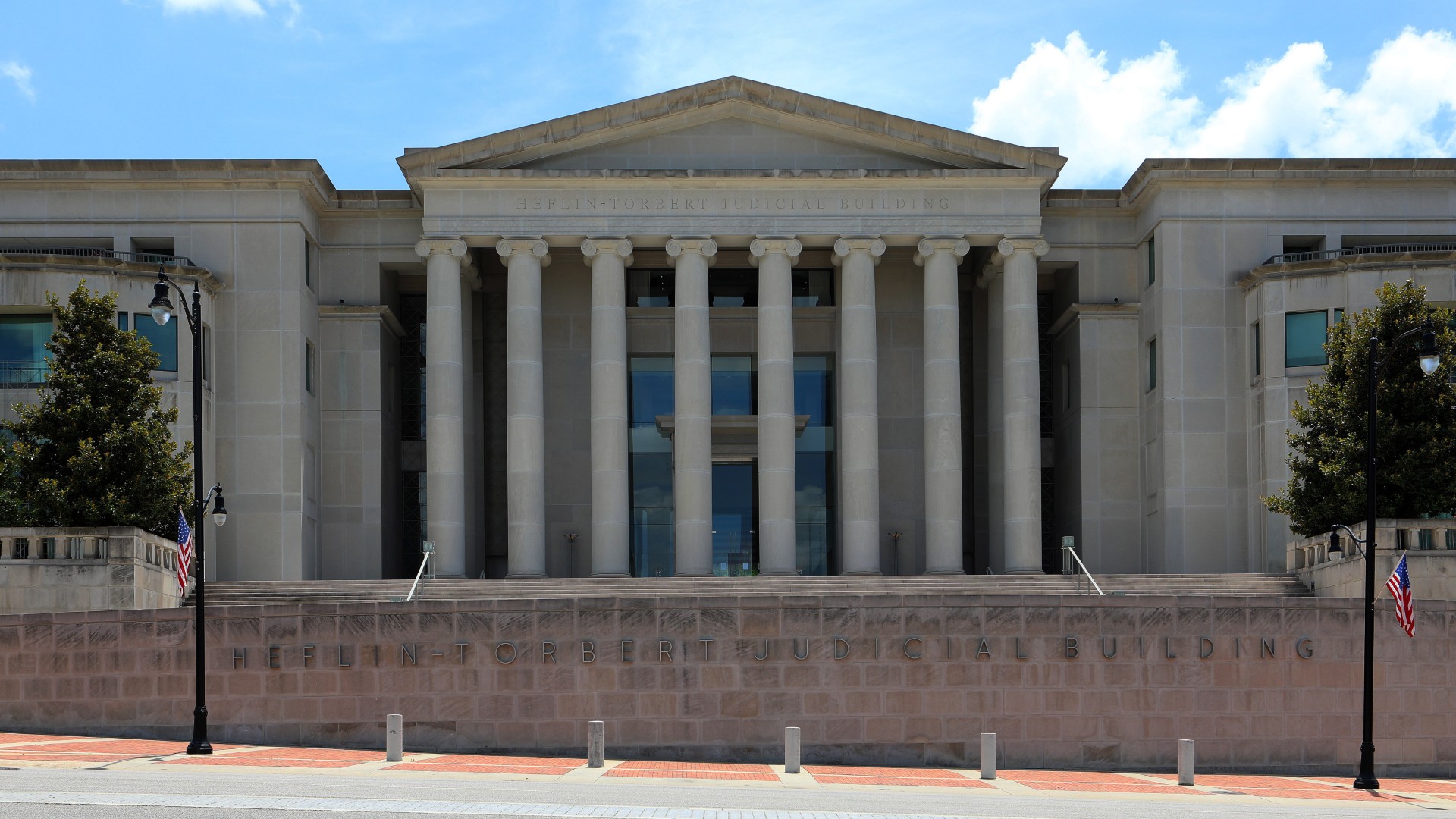Alabama's Supreme Court ruling on frozen embryos could have national implications
The court recently ruled that embryos created during IVF are children


A free daily email with the biggest news stories of the day – and the best features from TheWeek.com
You are now subscribed
Your newsletter sign-up was successful
The Alabama Supreme Court handed down a decision last Friday that could have implications for reproductive health across the United States. The court ruled that frozen embryos created via in-vitro fertilization (IVF) are children, and therefore protected under Alabama state law.
The ruling came in response to a wrongful death lawsuit filed after a patient at an Alabama fertility clinic mistakenly dropped a couple's frozen embryos. Lawyers for the patient argued that the lawsuit was moot because the embryos had not been implanted in a uterus. But the court declared that wrongful death "applies to all unborn children, regardless of their location," allowing the embryos to be given the same protections as living babies for the lawsuit. It is Alabama's policy to "recognize and support the sanctity of unborn life and the rights of unborn children, including the right to life," the court said in its ruling.
Although the ruling itself only applies to Alabama, advocates for reproductive rights have expressed concerns that it could lead to similar restrictions on IVF in other conservative-leaning states. The ruling also comes as the United States Supreme Court is continuing to hear broader arguments on reproduction in the aftermath of Roe v. Wade being overturned.
The Week
Escape your echo chamber. Get the facts behind the news, plus analysis from multiple perspectives.

Sign up for The Week's Free Newsletters
From our morning news briefing to a weekly Good News Newsletter, get the best of The Week delivered directly to your inbox.
From our morning news briefing to a weekly Good News Newsletter, get the best of The Week delivered directly to your inbox.
The ruling could be the end of third-party fertility
Alabama's ruling is a "devastating hit to the third-party fertility industry, which is comprised of large networks of agencies, clinics, and egg banks around the nation," Ellie Quinlan Houghtaling said for The New Republic. This will lead to a "terrifying development for the one in six people impacted by infertility who need in-vitro fertilization to build their families," Barb Collura, the president and CEO of Resolve: The National Infertility Association, said to the outlet. It will have "devastating consequences, including impacting the standard of care provided by the state’s five fertility clinics," Collura said.
The ruling could create a situation where "people being able to get care for their infertility is going to be so much harder in Alabama, and not because we're putting more protections in place, because the way the court has decided the status of a fertilized egg," Collura said to the Alabama Reflector. In addition to couples being hindered in their efforts to conceive, the decision "could leave fertility clinics vulnerable to lawsuits over frozen embryos," Alander Rocha said for the Reflector.
The ruling could open the door to lawsuits "in all cases where embryos don't survive being thawed and transferred to the uterus," Sean Tipton, the spokesman for the American Society for Reproductive Medicine, said to Al.com. This continued threat of legal action "could keep doctors and clinics from offering IVF in Alabama," Tipton said.
The 'next step' for the anti-abortion movement
Beyond Alabama, the court's ruling is the "'logical' next step for the anti-abortion movement as it seeks to broadly define human life," Dan Rosenzweig-Ziff said for The Washington Post. This is not the first time that anti-abortion groups have tried to make the destruction of embryos illegal, but "no other state's high court has ruled on the matter in this way," Rosenzweig-Ziff said. The decision also comes as Alabama "now accounts for nearly half of all criminal cases related to pregnancy across the country," said Pregnancy Justice.
A free daily email with the biggest news stories of the day – and the best features from TheWeek.com
The ruling is a "natural extension of the march toward fetal personhood," Dana Sussman, the deputy executive director of Pregnancy Justice, said to the Post. "You only need one state to be the first out of the gate, and then the next one will feel less radical," Sussman said. "This is a cause of great concern for anyone that cares about people's reproductive rights and abortion care."
Historically, IVF "has not been the basis for much political debate in recent years, since it was something both parties could agree on," but that is "apparently poised to change," Steve Benen said for MSNBC. Also generating controversy is the fact that Alabama's decision "included specific references to the Christian Bible — in a country in which the government is supposed to be neutral on matters of faith," Benen said.
These types of cases seem primed to gain traction. As such, reproductive advocates are continuing to "[raise] alarms about the potential impact on fertility medicine, families that take advantage of it, doctors who provide it, and companies that support it," Tessa Stuart said for Rolling Stone.
Justin Klawans has worked as a staff writer at The Week since 2022. He began his career covering local news before joining Newsweek as a breaking news reporter, where he wrote about politics, national and global affairs, business, crime, sports, film, television and other news. Justin has also freelanced for outlets including Collider and United Press International.
-
 Will increasing tensions with Iran boil over into war?
Will increasing tensions with Iran boil over into war?Today’s Big Question President Donald Trump has recently been threatening the country
-
 Corruption: The spy sheikh and the president
Corruption: The spy sheikh and the presidentFeature Trump is at the center of another scandal
-
 Putin’s shadow war
Putin’s shadow warFeature The Kremlin is waging a campaign of sabotage and subversion against Ukraine’s allies in the West
-
 Big-time money squabbles: the conflict over California’s proposed billionaire tax
Big-time money squabbles: the conflict over California’s proposed billionaire taxTalking Points Californians worth more than $1.1 billion would pay a one-time 5% tax
-
 Supreme Court upholds California gerrymander
Supreme Court upholds California gerrymanderSpeed Read The emergency docket order had no dissents from the court
-
 Did Alex Pretti’s killing open a GOP rift on guns?
Did Alex Pretti’s killing open a GOP rift on guns?Talking Points Second Amendment groups push back on the White House narrative
-
 Washington grapples with ICE’s growing footprint — and future
Washington grapples with ICE’s growing footprint — and futureTALKING POINTS The deadly provocations of federal officers in Minnesota have put ICE back in the national spotlight
-
 Trump’s Greenland ambitions push NATO to the edge
Trump’s Greenland ambitions push NATO to the edgeTalking Points The military alliance is facing its worst-ever crisis
-
 Why is Trump threatening defense firms?
Why is Trump threatening defense firms?Talking Points CEO pay and stock buybacks will be restricted
-
 How robust is the rule of law in the US?
How robust is the rule of law in the US?TODAY’S BIG QUESTION John Roberts says the Constitution is ‘unshaken,’ but tensions loom at the Supreme Court
-
 Trump considers giving Ukraine a security guarantee
Trump considers giving Ukraine a security guaranteeTalking Points Zelenskyy says it is a requirement for peace. Will Putin go along?
